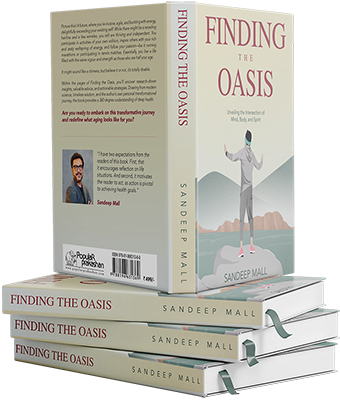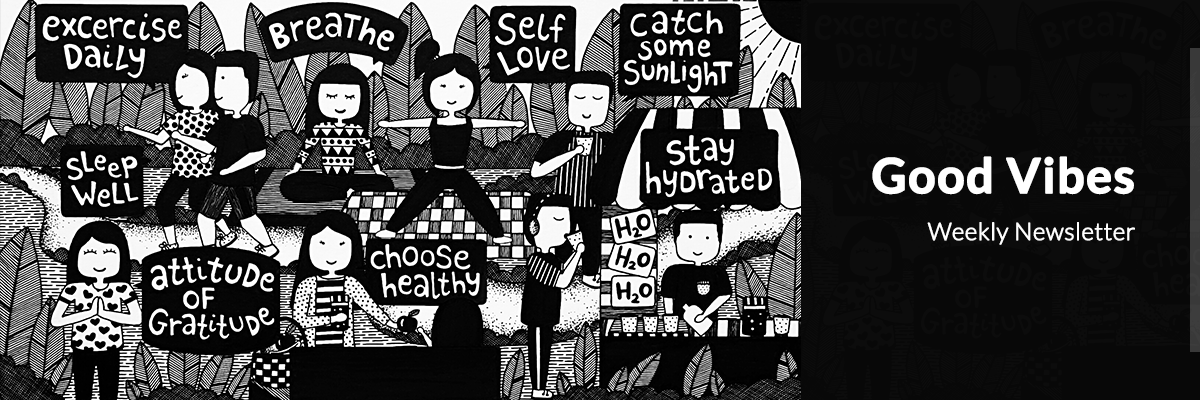
For efficient stress management and optimal health
When we respond, recover, and adapt well, stress makes us better. It helps us learn, grow, change, heal, and improve.
For instance, consider the thrill of a roller coaster ride. The experience is brief and leaves you feeling invigorated afterward, assuming you enjoy such rides.
Similarly, exercise represents a positive form of stress. While the activity might be challenging, the post-workout sensation is often rewarding.
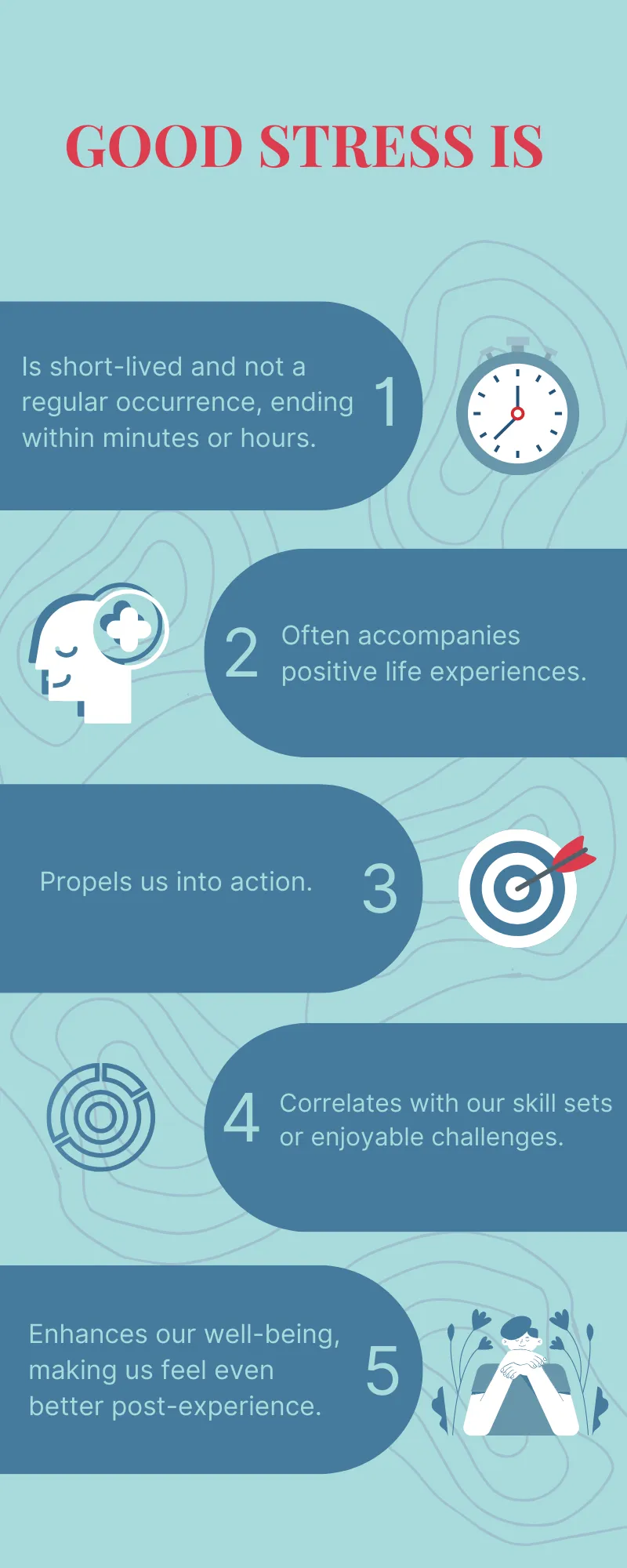
However, imagine being on that roller coaster continuously or enduring a gruelling 8-hour workout daily. It wouldn’t be enjoyable anymore, right? This signifies distress or harmful stress.
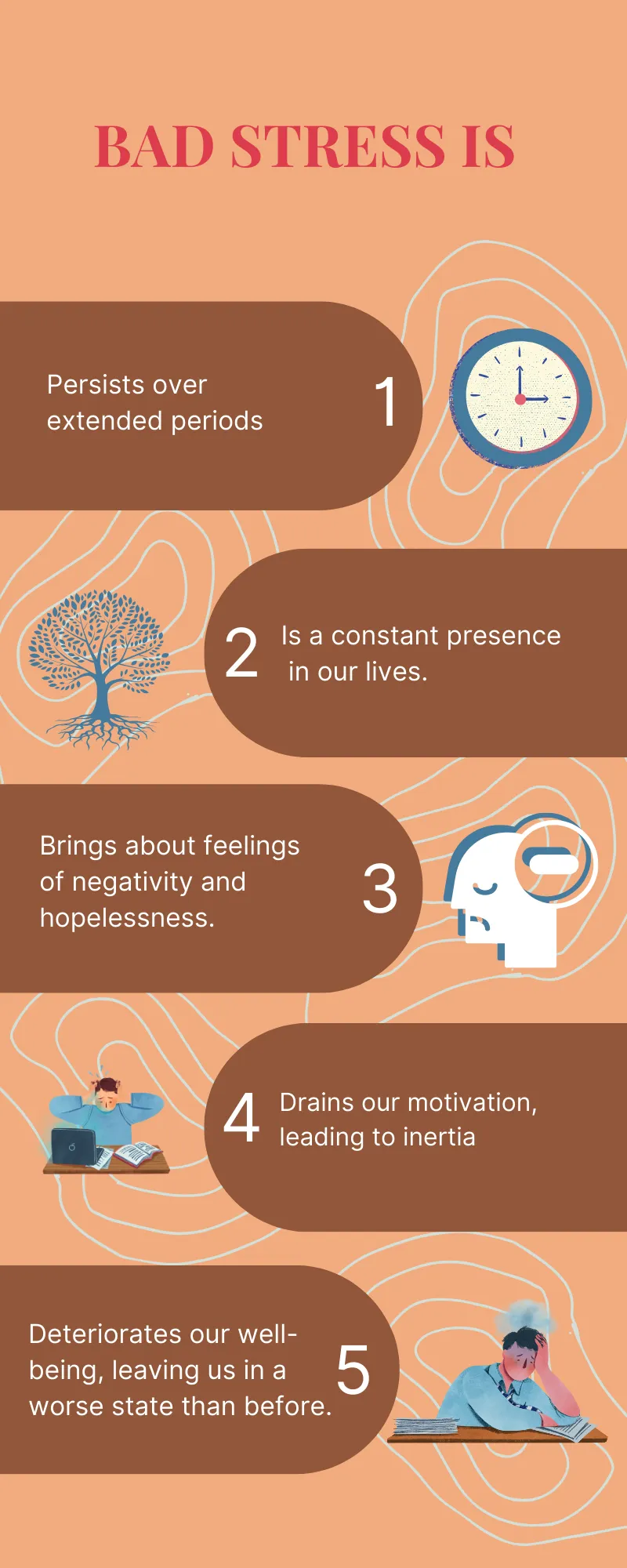
The primary factor differentiating good stress from bad stress is our capacity to recover post-experience.
Here’s the catch…
If we don’t manage stress aptly, it wears us down. Inadequate recovery between stressful events, whether due to frequent or intense stressors, or compromised recuperation, can intensify the adverse effects of stress.
The Stress-Recovery Tank
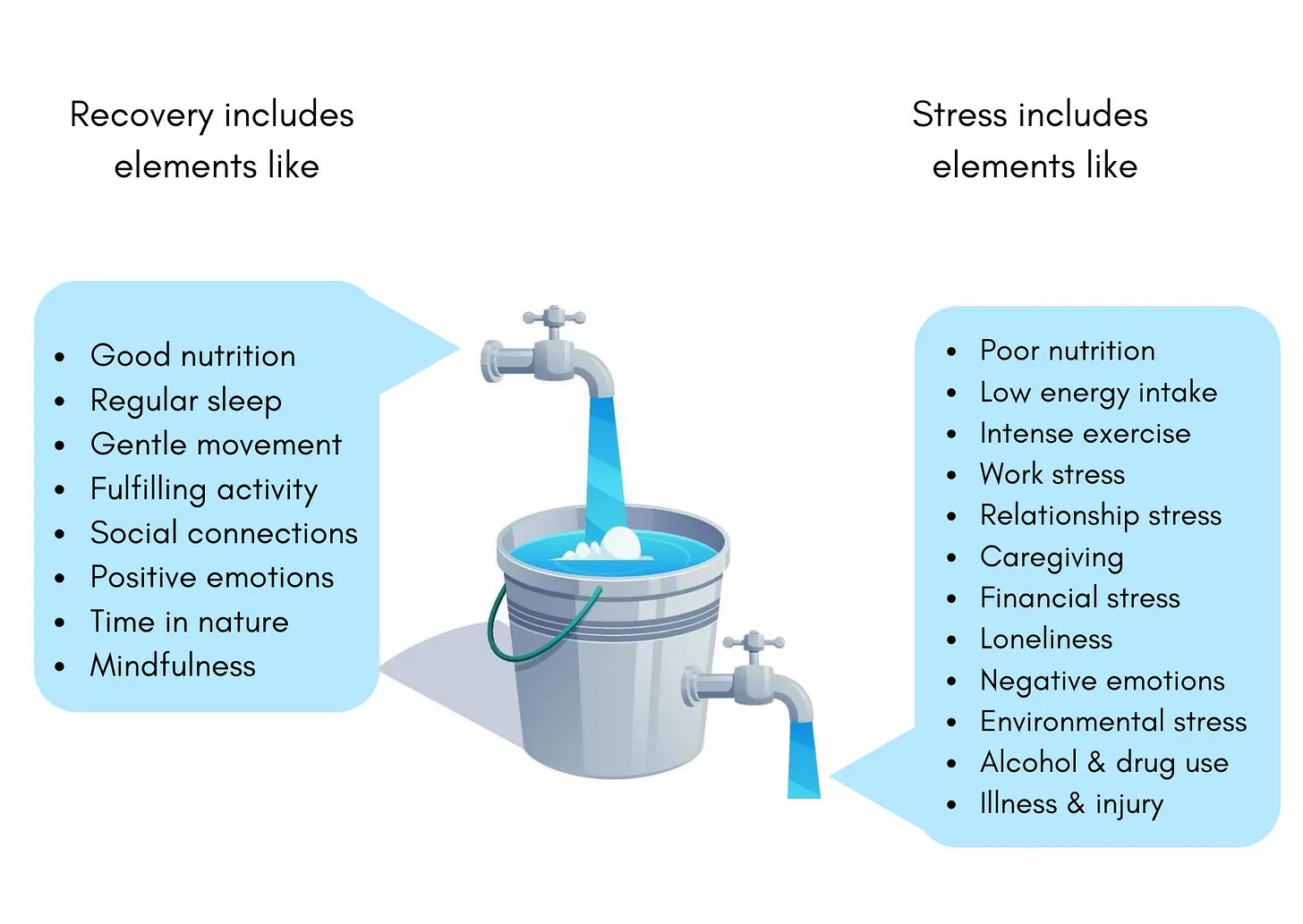
Visualise the equilibrium between stress and recovery as a reservoir that can be filled by a tap (representing recovery) and simultaneously emptied through a drain (symbolising stress). To maintain or increase the water level in this reservoir, you can plug the drain, thereby reducing stress. Alternatively, you can turn on the tap more robustly, incorporating more recovery measures.
Ideally, to achieve the best equilibrium: Minimise stress while amplifying your rest and recuperation practices.
We can assess an individual’s stress and relaxation responses in various ways.
Given the significant role our heart and lungs play in our stress response and overall performance, cardiovascular and respiration indicators are valuable in gauging reactions and determining relaxation levels.

